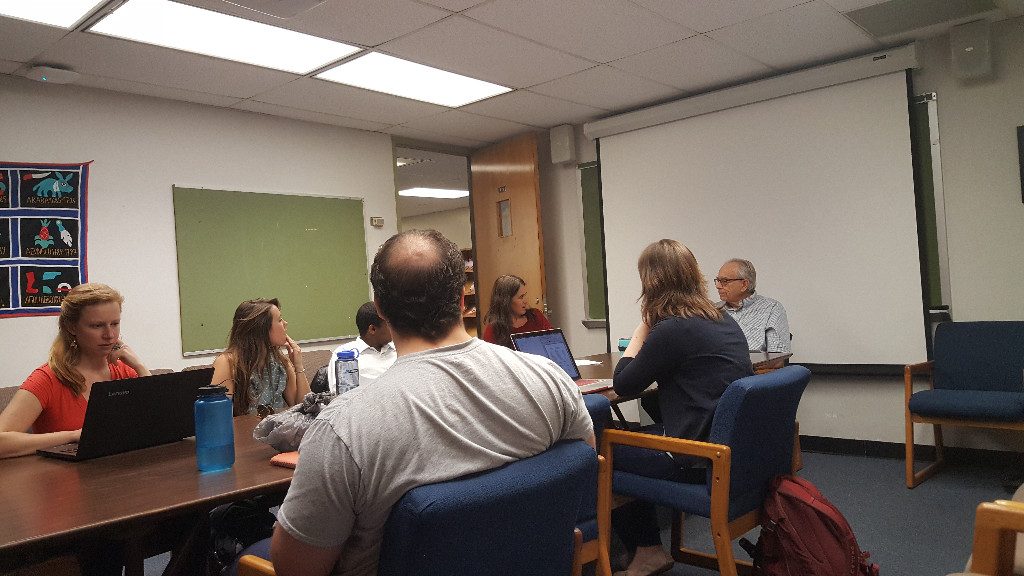On Monday February 6th, Goran Hyden gave a Social Change and Development Working Group talk titled, “Who Owns What? Ownership in Partnership”. Dr. Goran Hyden is Emeritus Professor of Political Science at UF. His talk introduced a study of ownership, which promotes a reconceptualization of the international aid in terms of ownership, which has historically disadvantaged recipient inputs in the donor-recipient relationship. Below is an excerpt from a manuscript Hyden distributed to the CAS listserve.
“The story of ownership in international development cooperation is about how to balance the concerns and interests of partner countries with the objective of donors to achieve an effective outcome of their aid. This is a dynamic that has played out in diverse ways since its early days in the mid-20th Century. Because the notion of ownership in development cooperation is political rather than legal, its application in aid relationships is both complex and contextual. There is no single definition that applies to all actors or all situations…
As the ownership concept is becoming increasingly prominent in development discourse, it is also becoming more contested. It is no longer just a cardinal principle of ensuring aid effectiveness but more and more a principle for enabling partner countries to choose their own way forward (Carothers 2015). Since the partnership model was adopted, donors have operated on the assumption that recipients share the same values as theirs, pointing to international agreements like the Millennium Development Goals (MDGs) as justification for their position. Ownership, therefore, has been interpreted primarily as a matter of controlling resources for policy implementation. Donors have downplayed or even ignored the politics of the relationship and treated it in “principal-agent” terms with the objective of achieving what is in their primary interest: evidence that aid is used in an integral manner and shows measurable degrees of effectiveness (CABRI 2014). The more inclusive approach to ownership that is now emerging is changing this by suggesting that the most important thing is for policy initiatives to yield results for local stakeholders and their prospective beneficiaries regardless of whether they conform with donor values and norms. The concern among the partners begins to shift from aid to development effectiveness. It brings the equation back to where it was in the ownership period of the 1960-70s when countries in the South chose their own development models and donors had to respond accordingly.”
References
Collaborative African Budget Reform Initiative (CABRI) 2014. Towards a Greater Use of Country Systems in Africa: Recent Trends and Approaches. Synthesis. Pretoria: CABRI.
Carothers, Thomas 2015. ‘The Deeper Struggle over Country Ownership’, A Governance Practitioner’s Notebook: Alternative Ideas and Approaches. Paris: OECD.